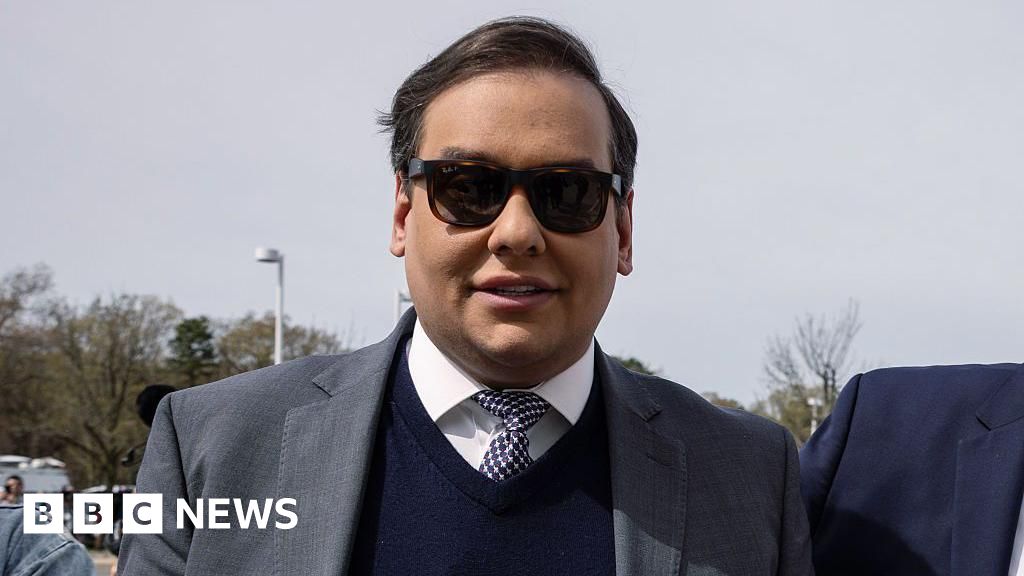Experts believe that any effective strategy to address the incursions must be focused on deterring Russian President Vladimir Putin. And despite earlier promises to impose stricter sanctions on Russia if President Putin does not end the war in Ukraine, President Donald Trump now says that the U.S. will only carry through with those sanctions if NATO member states do the same and end all purchases of Russian oil.
THE CONTEXT
- Data from the Center for Information Resilience and reported by The Wall Street Journal shows that Moscow launched close to 6,300 drones in July of this year, up from 426 just one year earlier.
- According to officials, at least three Russian drones were shot down last week as Polish F-16 and Dutch F-35 fighter jets were scrambled.
- Acting U.S. Ambassador to the U.N. Dorothy Shea told the UN Security Council that "The United States stands by our NATO allies in the face of these alarming airspace violations…And rest assured, we will defend every inch of NATO territory”, adding that "These actions, now with the addition of violating the airspace of a U.S. ally – intentionally or otherwise – show immense disrespect for good-faith U.S. efforts to bring an end to this conflict."
- On Friday, September 12, NATO launched operation Eastern Sentry to bolster deterrence. The mission includes enhanced air policing, expanding existing operations there. European Sentry is a “multi-domain activity” including aircraft, sensors and air defenses.
- Air policing is the use of military fighter aircraft to protect airspace from unauthorized penetration and ensure air traffic safety from threats. NATO Air Policing is a part of the Integrated Air and Missile Defense (IAMD) framework, providing 24/7/365 coverage of NATO airspace. Begun in 1961, the NATO Air Policing mission provides airborne quick reaction forces (QRFs) to member countries.
- As a part of the broad set of assurance measures since Russia’s annexation of Crimea in 2014, Allies are providing additional assets to enhance air policing along NATO’s eastern borders. To that end, Allies supplement the existing NATO Air Policing forces in the Baltic States, deploy additional aircraft to Poland, and augment the national air policing capabilities of the Bulgarian and Romanian air forces.
THE INTERVIEW
The Cipher Brief spoke with former Supreme Allied Commander General Phil Breedlove (Ret.), who also served earlier in his career as a military fighter jet pilot, to better understand what’s stake and what options NATO has for implementing its own form of deterrence from future Russian aggression. Our conversation has been lightly edited for length and clarity. You can also watch our conversation on The Cipher Brief’s Digital Channel.
General Philip M. Breedlove
Gen. Breedlove retired as the Commander, Supreme Allied Command, Europe, SHAPE, Belgium and Headquarters, U.S. European Command, Stuttgart, Germany. He also served as Vice Chief of Staff of the U.S. Air Force, Senior Military Assistant to the Secretary of the Air Force; and Vice Director for Strategic Plans and Policy on the Joint Staff.
The Cipher Brief: How serious of an issue was Russia’s drone incursion into Poland?
Gen. Breedlove: I think it is serious, but it's not serious in the way that some in the press are reporting it. I've seen some press calling this an attack on Poland. I don't think that Mr. Putin intended to attack Poland, but I do believe it was completely and 1000% deliberate and that he is testing NATO and testing Poland. And for that reason, it is important. It is serious and we need to be taking appropriate action.
The Cipher Brief: Many experts are saying that what the U.S. decides to do in response could be consequential in terms of deterring President Putin. What do you think needs to be done to give NATO what it needs to be effective?
Gen. Breedlove: The very first thing would be a simple statement by President Trump saying, "This is wrong, Mr. Putin, stop it," and he needs to say it publicly for the whole world to see.
Second, I would encourage our government to help NATO to come to a better place on how we defend our skies. We are in a posture called air policing, that is a peacetime posture and operates under peacetime Rules of Engagement. Air policing is really a result of 9/11. It is a functionality of alert aircraft that are designed to address renegade - that's the official term - renegade aircraft, meaning aircraft that are not squawking appropriately, talking appropriately, or are flying in the wrong airspace. And all they can do in peacetime is to go up and to investigate and try to warn off the airplanes and this is only when a foreign country is flying over your airspace. So, as an example, when a British or a U.S. airplane is flying over Estonia, they have zero rules of engagement that allow them to engage the enemy, except in self-defense. If the enemy makes a move toward the aircraft, they can defend themselves. If the enemy makes a move to drop a bomb though, there are no rules of engagement for the air policing. I've been advocating since May of 2016 that we need to change our posture to an air defense posture with an air defense rule of engagement set, which would allow an American pilot to defend Estonia if the need arised.
The Cipher Brief: It’s not hard to imagine how a situation could escalate quickly. But you had an entire career to think about these types of things. You've also been a huge advocate of no-fly zones. You thought a no-fly zone needed to be imposed on Ukraine from day one. Could that have any bearing here now?
Gen. Breedlove: Absolutely. And we don't want to cry over spilt milk or water under the bridge, but we proposed a set of operations back in 2014, [when Russia invaded Crimea] and if we had adopted any of those, we would be in a different place than we are now. We are at the crux of being in the same situation again. In three or four years, we will be answering for the decisions we make now. And if we were to establish some sort of zone that says, "Mr. Putin, stop," publicly, loudly, so the Russian people can hear it and Mr. Putin can hear it, we will find ourselves in a different place in three years than if we just continue along the path that we're currently on.
The Cipher Brief Threat Conference is happening October 19-22 in Sea Island, GA. The world's leading minds on national security from both the public and private sectors will be there. Will you? Apply for a seat at the table today.
The Cipher Brief: Another thing that you have been very vocal on is deterrence. And the fact that the U.S. has really, despite actions that it has taken in the past, has not yet deterred the Russian president from aggressive acts against his neighbors. There's a sanctions package that's just waiting to be passed right now that a lot of Republicans in Congress are trying to push forward and it hasn't really gotten the support yet from the president. What impact might those sanctions have?
Breedlove: I'm a fan of sanctions, but we also have to be intellectually honest and understand that sanctions have never, ever changed Mr. Putin's battlefield actions. Sanctions have hurt Russia, they've hurt the Russian people, they've hurt the Russian economy and they're having an impact, and we need to keep them going. But sanctions alone have never changed Mr. Putin's battlefield actions. It's going to take more. I hope we adopt the sanctions. We need to tell Mr. Putin, "We are going to put these sanctions on you," and then do it. We've already said that and we’ve passed that red line a couple of times now, but this time we need to actually do it.
The other thing that would be a smart move by our president and our country would be to use every penny of frozen Russian assets to buy weapons for Ukraine. Why is this important? Most of that money belongs to oligarchs who are right below Mr. Putin, and you start taking their money and their boats and all that stuff away from them and he's not going to have as easy a time moving around in his own political circles. We need to start punishing those oligarchs by using their money to support the war effort in Ukraine. It would be important for the world to hear, especially the Russian people, that Russian money is paying for Ukrainian weapons.
The Cipher Brief: Using those frozen Russian assets has been another point of conversation for some time now that feels like a decision needs to be made one way or another. Whose decision is it right now, is it Europe?
Gen. Breedlove: Well, it's all of us. There are multiple systems that are involved, and this is going to have to be something that western leaders - to include our president - would have to rally to get it to move forward. It can't be a NATO action because you know Mr. Putin has at least two of our leaders in his pocket and they're going to vote against that if it's a NATO action. So, this has to be more of a coalition of the willing EU, NATO kind of thing where all the nations involved, including ours says, "This money is now going to the manufacturers in Europe and the manufacturers in America who are going to put forward weapons for Ukraine." That is the picture we need the Russian people to see, that their money, these oligarchs’ money is being used to buy Ukrainian weapons.
The Cipher Brief: What about other methods of deterrence?
Gen. Breedlove: I believe that we have strategic deterrence. I believe that we have conventional deterrence inside NATO, but I would tell you that tactical nuclear deterrence is beginning to fade because Mr. Putin continually talks about Russia lowering the bar and being ready to use tactical nuclear weapons. He's doing that to deter us, and it has worked. Former President Biden's administration was completely deterred. Mr. Trump's administration is nearly completely deterred when it comes to that realm. But here's the part that I think we need to think about. The previous administration said dozens of times, ‘We will defend every inch of NATO’. When President Biden said that, here's what President Putin heard: ‘Every other country is fair game have at it.’ So, he's essentially retaken Georgia politically. He's in the middle of doing the same in Moldova. He's attacking at will in Ukraine. So, we need to change that posture. We need to establish conventional deterrence outside of NATO because it has been forfeited and given away, and that is a problem.
The Cipher Brief: There's a lot of talk right now, a lot of speculation, a lot of concern, and a lot of talk about World War III when you're looking at the alignment of China and Russia. How realistic do you think that is?
Gen. Breedlove: That's exactly what Mr. Putin wants you to think. That is the exact result he wants, and he wants people like you and me talking about it and enhancing the message and getting everybody fearful of War War III. This is what is called reflexive control [Russian military theory based on the belief that you have control over your enemy by imposing assumptions that change the way they act]. Mr. Putin is exercising reflexive control, and it is working wildly. He is succeeding magnificently in controlling Western thought and especially, the decisions of Western leaders.
As I said before, Mr. Biden's administration was nearly completely deterred, and this administration is in the same place. Our most senior policy maker in the Pentagon is absolutely deterred, and we need to get past that. We need to think about how President Kennedy faced these kinds of problems during the Cuban missile crisis, how former President Reagan faced these problems during the intermediate range missile crisis and at how we’ve faced down the Soviet Union and Russia in the past. We seem to be somewhat incapable of doing that now.
Researchers Ian Coleman and Connor Cowman contributed to this report.
The Cipher Brief Threat Conference is happening October 19-22 in Sea Island, GA. The world's leading minds on national security from both the public and private sectors will be there. Will you? Apply for a seat at the table today.
Are you Subscribed to The Cipher Brief’s Digital Channel on YouTube? There is no better place to get clear perspectives from deeply experienced national security experts.
Read more expert-driven national security insights, perspective and analysis in The Cipher Brief because National Security is Everyone’s Business.

 1 month ago
13
1 month ago
13











 English (US) ·
English (US) ·